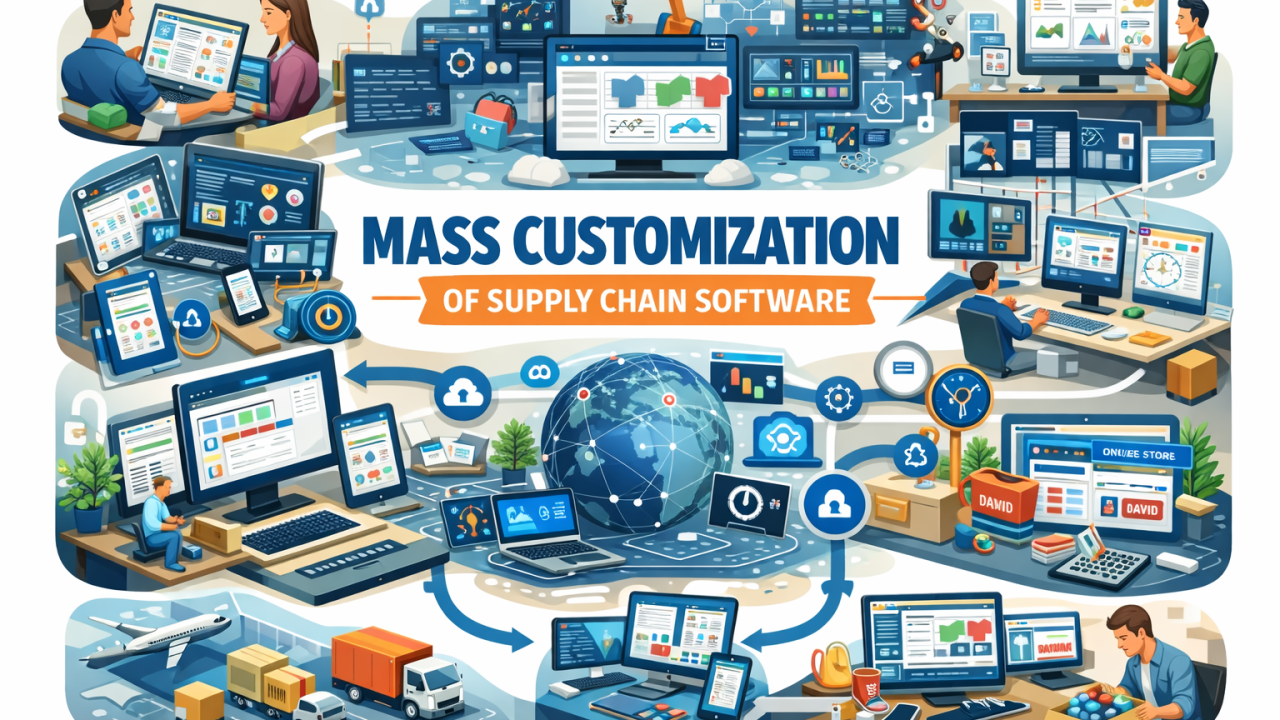In today’s highly digital, data-rich world, supply chain professionals are turning to AI-powered solutions to enhance supply chain performance at every level. The evolution of AI in supply chain management extends far beyond basic automation; it’s about unlocking the potential of predictive analytics, real-time data processing, machine learning, and automated decision-making. These technologies enable companies to optimize operations, enhance resilience, and better meet customer demands — all while reducing costs and managing risks.
Explore how advanced AI solutions redefine supply chain management, focusing on demand forecasting, inventory and order optimization, automation, and risk mitigation. By leveraging these capabilities, businesses can strengthen operational efficiency and responsiveness, key differentiators in industries with tight margins and high variability, such as the food and beverage industry.
AI’s Impact on Forecasting Accuracy
AI-powered demand forecasting tools have transformed demand planning by moving from static, historical models to dynamic, real-time insights. Through the application of machine learning algorithms and neural networks, AI can process massive datasets, including historical sales, economic trends, and real-time inputs like weather data and consumer sentiment.
These AI-powered tools produce highly accurate, actionable forecasts, which are essential for industries like F&B where fluctuating consumer preferences, seasonal demands, and limited product shelf life play a critical role in operations. For example, demand for certain products might surge or dip based on seasonal trends, local events, or emerging consumer preferences. AI/ML algorithms that leverage the latest demand picture enable companies to adjust forecasts quickly, align production schedules, and reduce overstock or stockout risks, resulting in a more efficient, responsive supply chain.
Optimization of Inventory and Order Management
In supply chain management, AI extends far beyond forecasting by optimizing inventory and order management with machine learning models. AI-powered systems use sophisticated algorithms to evaluate a combination of factors and dynamically adjust reorder points and safety stock levels. This leads to reduced inventory as well as reduced transportation and warehousing costs.
Inventory optimization also benefits from AI’s capability to handle multi-echelon networks, where inventory is managed across multiple facilities or locations. For F&B companies with dispersed distribution centers or retail locations, AI can automate reallocation, ensuring that high-demand locations remain stocked while avoiding overstock in low-demand regions. This optimization translates into reduced holding costs and more efficient use of inventory across the entire network, ultimately meeting customer demands more effectively.
On the order management side, AI’s automated prioritization and allocation capabilities allow for rapid fulfillment, reducing lag times and improving customer satisfaction. By anticipating shifts in demand and automating responses, companies can enhance supply chain agility, positioning them to outperform competitors in service levels.
Enhancing Operational Efficiency Through Automation
AI can significantly elevate operational efficiency by automating repetitive tasks like order processing, demand planning, inventory auditing, and scheduling. By integrating AI with ERP systems and MRP systems, companies achieve a seamless flow of information and process automation, from procurement to production to fulfillment.
Automated order processing with robotic process automation, for example, speeds up time-to-fulfillment, reduces errors, and frees up staff for higher-level tasks. For F&B companies, where timely delivery is crucial due to perishability, this streamlined process can mean fresher products on shelves and happier customers.
AI-powered automation further enhances supply chain performance by enabling prescriptive insights. For instance, an AI system might identify low-demand periods and recommend reduced production or reallocation of resources, helping companies avoid excess inventory and reduce costs. Advanced scheduling algorithms can also dynamically adjust manufacturing and logistics schedules based on real-time inputs, ensuring that operations run smoothly and efficiently, even during peak seasons or times of high volatility.
Managing Risks with Predictive and Prescriptive Insights
Supply chain professionals have long struggled with managing risks posed by uncertainties in demand, supply delays, and unexpected events. AI enables more proactive risk management by leveraging predictive and prescriptive analytics. Predictive analytics uses historical and real-time data to anticipate potential disruptions, while prescriptive analytics provides actionable recommendations to mitigate risks.
For example, an AI system might detect early indicators of supplier delays through pattern recognition and anomaly detection, allowing a company to take corrective actions before the disruption affects production. This is particularly beneficial in the F&B industry, where delays can lead to spoilage and waste. Prescriptive analytics further empowers companies by offering specific recommendations, such as alternate suppliers, optimized routing, or adjusted production levels to maintain consistent supply.
In addition to traditional risk factors, AI helps companies prepare for unexpected, systemic challenges such as natural disasters, market shifts, or regulatory changes. Powered by AI, scenario planning allows companies to simulate various scenarios and model responses, building a more resilient supply chain. By using AI to preemptively mitigate risks, companies can maintain service levels and minimize losses even under challenging conditions.
Building a Resilient, Adaptive Supply Chain with Advanced AI
AI has become an indispensable tool for modern supply chain professionals, enhancing performance through predictive and prescriptive analytics, intelligent automation, and real-time insights. The implementation of AI in demand forecasting, inventory and order management, process automation, and risk management not only delivers operational efficiency but also builds resilience and adaptability.
For F&B companies and other high-stakes industries, adopting AI-driven supply chain solutions is no longer optional — it’s a strategic imperative for meeting customer expectations, controlling costs, and maintaining competitive advantage. As AI technology advances, the supply chain’s role in driving profitability and growth will only increase.
Contact us to schedule a demo and see how our AI-powered solutions can elevate your supply chain’s performance and adaptability.

.svg)

.svg)
%201.svg)

.jpg)

.svg)
.svg)
.svg)